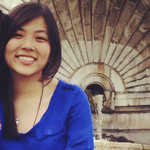

Easter Sunday. Arrived yesterday evening in front of the old town of Ibrim on the right bank of the Nile
March 31st, 1850, 4pm
Easter Sunday. Arrived yesterday evening in front of the old town of Ibrim on the right bank of the Nile. While Max was shooting images of the fortress from below, I climbed there, slowly on the mountainside, hurting my toe nails against the dry stones tumbling down from above - the earth looks like ash - three or four Arabs on donkeys passed to my right. I turn around the citadel to find an entrance; in the end I found one on the plateau looking East.
Inside is a city entirely enclosed within its walls; the houses are in ruins, all, and densely packed against each other, or rather joined; streets wind between them; at the center, a large square. If you climb on a wall, all the foundations of the ruined houses, whose four walls only remain, look like a chessboard.
Ruins of a mosque with a granite column on which a Greek cross stands - similar columns are used as door sills in several places. The entrance was on the North side. Through the cracks in the walls one can see long lengths of the Nile; large islands of sand - on the other side of the Nile, the desert - in the background, in the desert, a lone tree to the right; a little farther still, two more trees to the left.
This whole ruin smells of fever - one thinks about bored people dying there, of depression. It’s a Middle Ages Orient, all Mameluke, barbarous. The citadel built at the edge of the rock used to belong to the Mamelukes, who dominated the river - it is built with dry stones; a few parts, but quite rare, often at the corners, are built with cut stones.
Great silence - nobody - nobody - I am alone. Two birds of prey hover over my head. - I hear the voice of a man calling someone, out in the desert, on the other side of the Nile. I came back at sunset, slowly and looking everywhere at the black, spreading shadow. To my left a wide ravine leading to the desert - on the flanks of the ravine a winding path, used by hyenas. There are a lot of them around here; in the evening the Raïs had warns us not to stray from the boat; last year a Turk was eaten, along with his horse, at the first Cataract. Maxime, worried by my long absence, had sent sailors to meet me.


